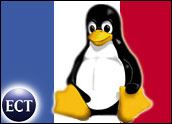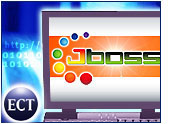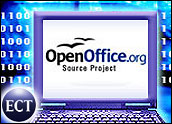
TransGaming Technologies on Tuesday announced the release of version 4.0 of its flagship product, WineX. The product, which allows Windows games to run under Linux, has also been renamed Cedega. Cedega 4.0 includes support for Microsoft DirectX 9.0, which significantly broadens the scope and availability of the latest titles for Linux gamers, according to TransGaming.
The name switch is a nod toward the product’s maturity, said TransGaming co-CEO and president Vikas Gupta in an interview with LinuxInsider. He noted that the name “WineX” started as an internal code name and “just stuck.” With this new release, the company feels that the product has evolved substantially.
“Cedega” is a variety of grape used to make port wine. As a play on words, it indicates both the ability to “port” Windows games to Linux as well as a higher level of sophistication.
“It’s a play on the theme of wine, but I think you’ll agree that port is a much more refined product than wine,” said Gupta. He noted that with this release, the company wanted to reinvent itself and demonstrate the evolution and maturity of the product.
Not So Spare Change
Gupta noted that the 4.0 release is a major technological milestone for the company, and that it contains more new features than any previous release.
Especially notable in the new version is more graphics ability. Cedega 4.0 includes Linux compatibility for DirectX 9.0 titles such as Battlefield: Vietnam and Star Wars Galaxies.
Also included is added support for Pixel Shader graphics technologies that are used in a variety of games for increased visual realism. In addition, TransGaming has increased the compatibility with InstallShield and MSI installers.
Another major change, said Gupta, is that Cedega 4.0 is the first release to incorporate the company’s “ShmServer” technology, which provides higher speeds for games that make heavy use of the Win32 kernel’s synchronization ability.
“This can speed up some games by 50 percent or more,” noted Gupta.
Release Me
In October 2001, TransGaming launched a subscription service with WineX that supported six games, including a Linux-specific version of Electronic Arts’ The Sims. Today, the company supports over 200 games.
Gupta said that the company felt making major changes to its flagship product was important because of the development speed of games and the quick-moving state of the industry.
“With the release of new games that use the latest and greatest technologies, it’s important that TransGaming keep pace with these developments, and fully support them on Linux to deliver the optimal and most rewarding game play experience to our customers,” he noted.
By making the changes, TransGaming will be able to support titles that have either just been released or will be released within the next few months, Gupta said, allowing Linux users to play the games on Linux immediately.
Going to Market
Whether there is a robust Linux community that hungers for games, or whether such a market is being created because of technologies like Cedega seems to depend on one’s point of view.
Al Koskelin, one of the founders of the LinuxGames site, told LinuxInsider that the community involved in the early days of native ports seems to be fading away. “It may just be that I’m getting old and so many of my peers are moving to Macs that I’m overlooking a new generation of the Linux gaming community,” he noted. “But it’s hard to not be pessimistic.”
He added that it could be argued that playing a game on Linux with WineX could be a shortsighted benefit because it might discourage native development on Linux or porting to Linux. However, he said, it is difficult to overlook the benefits. “It’s hard to discredit the fact that the average gamer just wants to play a game and have some fun, not necessarily promote the future of the platform they’re playing on.”
But Gupta believes that the use of products like Cedega will boost Linux adoption rather than hinder development of native Linux games.
“History has proven that the broad-scale adoption and proliferation of any new operating system is contingent on the availability of electronic entertainment,” he said. “As more applications and the ability to play games is made available, the faster the rate of Linux adoption.”





















































